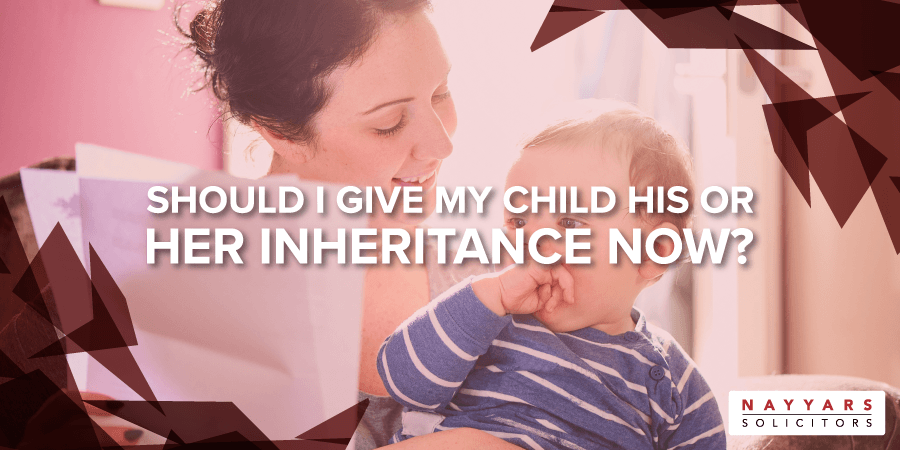LAW SOCIETY EXCELLENCE AWARDS 2019 WINNER!
Should I give my child his or her inheritance now?

This is a question that many parents think about when they have adult children? Should they start sharing out their assets in their lifetime. This is because of the 7 year rule. If there is inheritance tax to pay on an estate it is charged at 40% which is a considerable amount. However, gifts made 7 years before death do not count and there is no inheritance tax on these. This makes it an attractive proposition to those who want to avoid paying inheritance tax.
However, with adult children there is the worry that if they get divorced their spouse may take a share of the inheritance tax. This is putting some parents off inheritance tax planning.
Statistics show that one in three parents are unwilling to leave an inheritance in case it is lost as part of a future divorce settlement, according to a financial planners. Parents do not want hostile ex in-laws walking away with money or assets that they are keen to keep within the immediate family.
In recent years, research found that over 1/3 of parents said they were not confident with how stable their child’s marriage was. They had made agreements legally binding to keep inheritance tax out of a divorce settlement.
Unfortunately the UK has a high divorce rate and therefore it is understandable that parents are pessimistic over their child’s own marriage. However, this is disadvantageous as it means that in the long run they could end up paying more in inheritance tax.
There is also the added problem that wealth may be tied up with the value of their homes, they don’t always have the ability to move assets out of their estates prior to death.
We are here to help. It is important that everyone who is concerned that they may have to pay inheritance tax takes financial planning advice and prepares a Will. It is possible to ensure that inheritances stay with the children even in the event of a divorce.
For more information contact our Wills and Probate Team.
Ayesha Nayyar
Principal Solicitor


